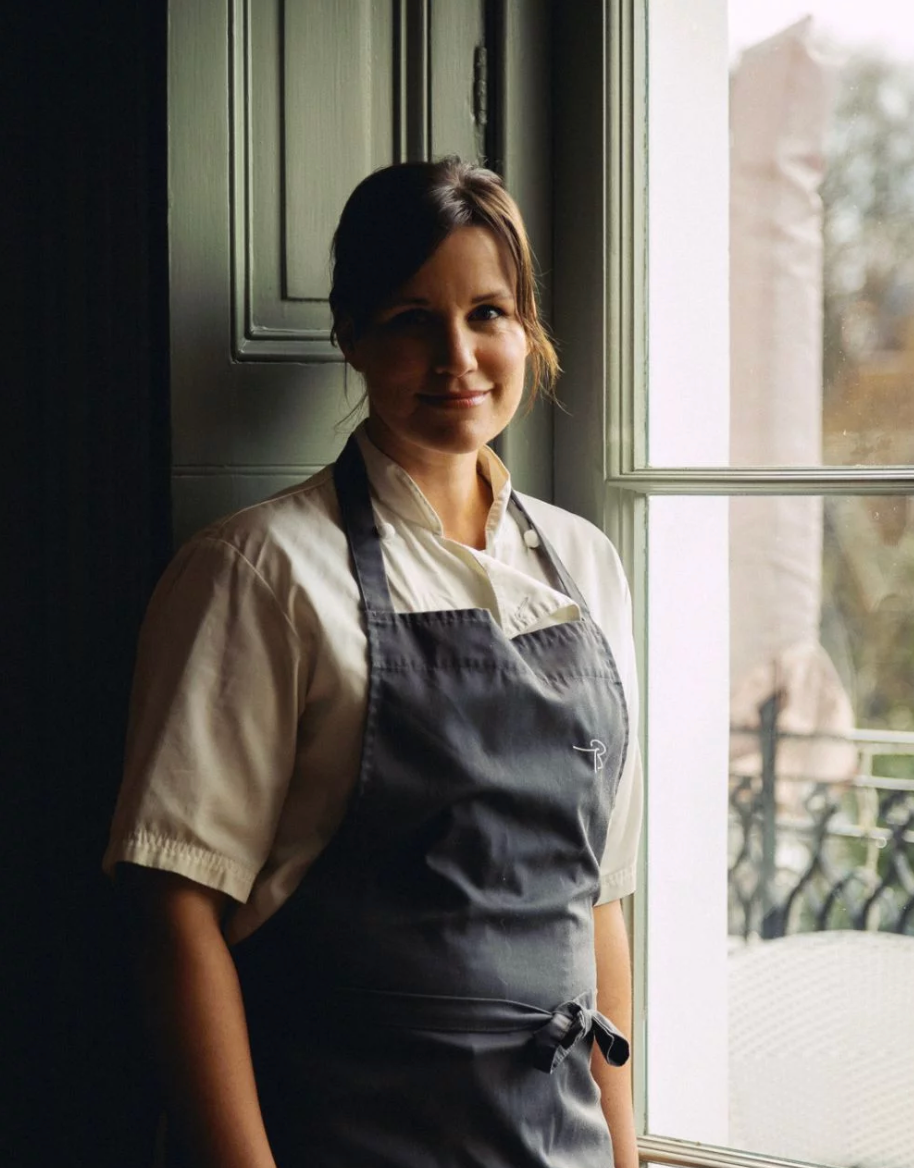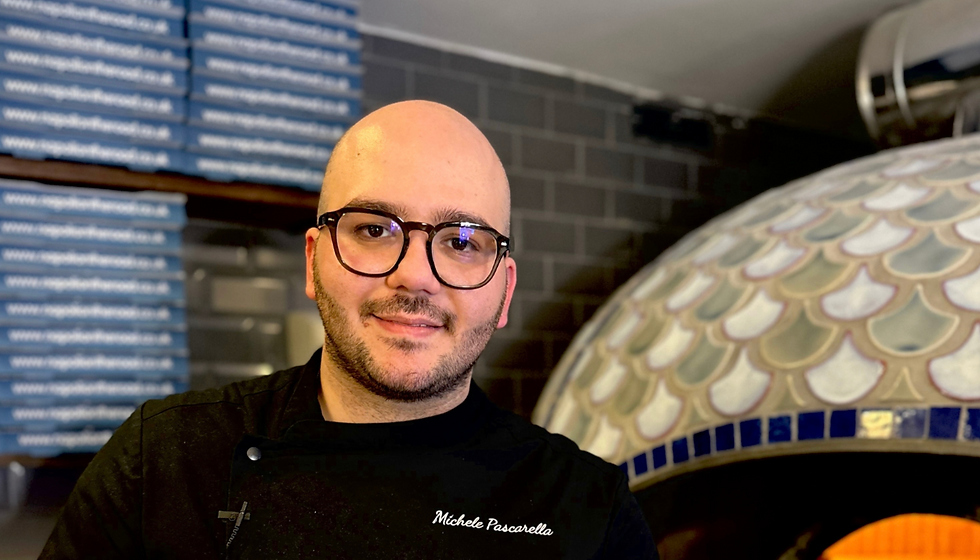Chef Vanessa Marx On Sustainability In The Food Industry
- thampham0720
- Aug 16, 2024
- 5 min read
Despite taking the position of executive chef merely months ago, Vanessa has revolutionized this sophisticated establishment into an environmentally conscious restaurant, curating a menu that highlights fresh ingredients, locally produced produce, and, naturally, a hint of South African influence.

What prompted your interest in cooking?
Both my family and my husband's family have a profound appreciation for food; it is integral to our way of life. Food has consistently played a significant role in my upbringing; in my family, we assert that we cook when we are sad, when we are pleased, and when we are celebrating. Our focus revolves entirely around food and beverages. As I approached the conclusion of my schooling, I was uncertain about my future aspirations; nonetheless, my mother proposed the idea of pursuing a career as a chef. I said that she was irrational; yet, we began exploring other culinary institutions, with one in particular located in Stellenbosch, Western Cape, renowned for its stunning scenery. I realized that this is indeed a legitimate profession, something one can pursue. I submitted my application, was invited for an interview, and subsequently received an offer of acceptance. My mother stated that if you intend to pursue anything, you must ensure its success; it must become your endeavor. After careful consideration, I proceeded to culinary school. I had recently graduated from high school. I commenced my career at 18, and two years later, I entered the industry directly, remaining engaged for the past 20 years.
What were your previous activities before to assuming the role of executive chef at the Riverhouse Restaurant?
I have been with Bingham for two and a half years. I commenced my role as head of events; having previously operated my own firm and held several senior positions, I perceived this as an advantageous opportunity to re-enter the field. I initially engaged in organizing members' activities, including weddings and business functions. I developed a casual dining menu for the members' club, which gained significant popularity, prompting me to undertake more projects. Ultimately, I departed to engage in external activities for personal enrichment and growth; but, in October of the previous year, the Bingham requested my return as the executive chef on a full-time basis at the restaurant. I concluded that it was an obvious decision. Having lived here for two years, I felt the necessity to broaden my horizons, hence I was genuinely glad to have the opportunity to do so. We reside five minutes away, thus it genuinely feels like home! Naturally, I had my entire team in place, making it a favorable approach that felt instinctive.

What does sustainability in food signify to you?
The term sustainability encompasses numerous concepts, necessitating caution in its usage. Your staffing and team also have a sustainability aspect. This involves collaborating with various suppliers and understanding their interpretations of sustainability; for instance, we have begun a tight partnership with Haye Farm in Devon, which attracted my attention due to their regenerative practices and circular approach. They are owned by the same proprietors as Petersham Nurseries, located nearby. This may lead one to question the rationale behind supporting competitors. They are our neighbors, fostering a feeling of sustainability through mutual support of local enterprises. Haye Farm delivers to Petersham Nurseries biweekly, which is advantageous as they can provide us with deliveries concurrently.
Sustainability is fundamentally linked to agricultural methods; it involves minimizing environmental impact, judiciously selecting menu ingredients, and considering the implications of product choices, including their origins. I frequently assert that perfection is not requisite; as long as you engage in any action, you are progressing towards greater sustainability. Transitioning from a conventional kitchen to a more sustainable one is a gradual process, not an instantaneous one. It is essential to retrain individuals, instructing them to reconsider their actions—such as segregating waste—and prompting them to contemplate alternative uses for items prior to disposal. The focus is on minimizing food waste, exercising discernment in seafood selection for the menu, and aligning with seasonal availability. Certainly, a balance exists, as creativity is essential; for instance, I include fruit elements on the menu that cannot be cultivated in the UK. It involves selecting the desired items for the menu and determining their timing, while maintaining moderation. The voyage is extensive, although we are progressing towards our destination.
How would you articulate your culinary philosophy?
Predominantly, my cuisine is highly natural, seasonal, and exceptionally fresh. It possesses significant foreign flavors and is somewhat universal; it does not adhere to traditional British cuisine.
In what manner do you integrate your South African ancestry into your culinary creations?
The restaurant is intriguing as it is not an independent establishment; it is not solely mine. I am the public representative and the creative force behind it; yet, it is part of a larger framework: we have the boutique hotel and the members' club, fostering a genuine Bingham community. Consequently, I have subtly included elements into the menu in little ways. The initial element is the bread course: during home braais in South Africa, it is common to prepare beer bread, which consists of beer combined with flour. This is a rapid bread characterized by a distinct hops flavor, offering a gratifying taste, and it serves as my distinctive item on the menu. It seems that everyone adores the lamb bobotie spring rolls, which are exceedingly addictive. In the future, I may include a South African dessert; now, we offer a petit four made with Rooibos tea, which is indigenous to South Africa.
What other sources do you draw upon for inspiration for your culinary creations?
I am uncertain if this is a clichéd response, but it undoubtedly pertains to the seasons. The primary factors I utilize for menu planning are the weather and the seasons. My culinary experiences are invariably centered around the individuals involved. I frequently ponder, who will dine here? What activities will they be undertaking? I enjoy observing the endeavors and accomplishments of fellow cooks with similar ideologies, since it is quite encouraging.
Which restaurants do you prefer in London?
Petersham Nurseries! They own a green Michelin star, and I thoroughly enjoy dining there; the cuisine is exceptionally fresh, remarkably simple, and elegantly presented. I also appreciate Fallow; it seems to be widely favored at present. Additionally, Little Kudu is situated beneath a railway arch in Peckham. It is a petite plate menu curated by a young female South African chef. Sitting at the counter and conversing with the chefs is enjoyable, and the menu features some typical South African items. It is gratifying to observe such acknowledgment of South African cuisine.
What are three essential ingredients for you?
Butter, olive oil, and coarse salt.
Can you provide any recommendations for sustainable food practices?
Be aware of the origin of your food and its contents. Seek out an individual or service that provides organic meat supplies, such as Haye Farm or Wild Markets, operated by an acquaintance of mine. I recommend engaging with small suppliers; do not feel compelled to purchase mass-produced food, since several alternatives exist.
The Riverhouse Restaurant is located at Bingham Riverhouse, 61-63 Petersham Road, Richmond, TW10 6UT binghamriverhouse.com





Comentarios